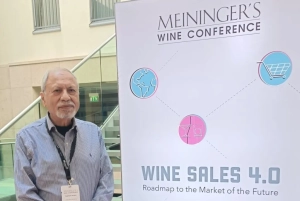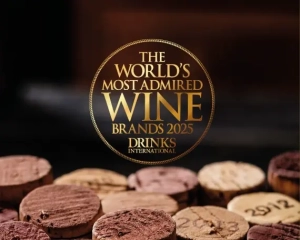Posted: Monday, 31 October 2022 08:13
Wine, Alcohol and Breast Cancer in Women
Wine and Cancer
I particularly take umbrage to the misrepresented ‘fact “that ‘moderate consumption greatly lowers the risk of breast cancer in women and bowel tumours in general. Not only is the statement not true depiction of reality but the contrary is true, according to most studies.
I had twice attended the ‘Heart Health Summit’ in Napa Valley in 2003 and 2005. I also met twice in these conventions, late Dr. Serge Renaud who became famous with his Study that explained that it was because of regular consumption of red wine that people in South France had good health despite poor eating habits. Along with Dr. Ellison he talked about the benefits of red wine at the world-famous TV programme ’60 Minutes’ in 1990.
I also met Dr. R. Curtis Ellison, Professor & Chairman, Public Health and Epidemiology, Boston University, who has been involved with similar studies and together they ‘convinced’ the world about the heart health benefits of red wine in moderation. I met several heart specialists from the USA and overseas, who all seemed to be in unison about the heart health improvement with wine drinking in moderation.
Also Read : Study: Wine may increase Risk of Breast Cancer
Dr Ellison is of the considered view that women imbibing wine or alcohol ought to take folate tablets regularly as it protects them against cancer. In fact, while he concedes that the chance of increased breast cancer is 10% with one glass, shooting up much faster with 2 more glasses but folate tablets bring down this 10% chance of increased probability to zero.
There has been an interesting study done in Australia recently, where up to one in ten cases of breast cancer is linked to drinking alcohol. Midlife women are already at increased risk for breast cancer because of their age, and tend to drink more than younger women. That means this group is at even more risk for breast cancer.
Also Read : Blog : Cola more harmful than Wine for Breast Cancer?
Health authorities have mostly dealt so far by telling women not to drink at all. But this approach does not work well with women. In fact, a recent study found women are not necessarily aware of the link between alcohol and breast cancer. And even if they are, they aren’t always able to quit.
Women say they face mixed messages about alcohol and cancer risk. The Conversation interviewed 50 “midlife” women (aged 45-64) living in South Australia from different social strata. Previous research has shown alcohol consumption performs a range of important functions for women, such as coping, socialising, networking and managing difficult situations. Women often feel they cannot necessarily “choose” not to drink in these circumstances. They also face mixed messages about alcohol and cancer risk.
Some alcohol brands do display pink ribbons in an effort to raise awareness about breast cancer. Media reports have come and gone over the years about the purported risks or benefits of alcohol for various illnesses. Many women in this study did not know that alcohol causes breast cancer. But upon hearing about it, they generally wanted to know more.
Also Read : Blog: Taking Red Wine with a Pinch of Salt
‘I didn’t realise there was a link and I went on and interrogated it after that, because I do enjoy a glass of wine. And I wondered, what am I knowingly getting into and to understand how alcohol affects your body, in terms of it increases the estrogen levels, and so that has a link to breast cancer,’ said one woman.
Others thought if knowledge became more common, breast cancer risk messages might more likely be accepted or at least less likely to be rejected. One woman said, ‘I think sometimes the more information comes out, or the more it’s repeated, the more it becomes common knowledge for people rather than easily dismissed.’
But, even if women are aware, the message that alcohol causes breast cancer can be difficult and confusing to hear. In response, trust in the message can waver. As one woman said, ‘I do question quite a lot because I do think the media play it up. I take it with a pinch of salt.’
Exaggerated Messages also seem to be off-putting. As one woman put it: ‘First of all, you just look at the tone of the way they wrote about things, you’d probably, if you thought it’d been sensationalised, or if they were axe-grinding.’
Also Read : Excess Alcohol May Increase Breast Cancer Risk
Indeed, encountering conflicting information in daily life made some public health messages feel less creditable to some women. Some women instead preferred to rely on “gut feeling” to judge information.
Considering who and what to trust in terms of information about alcohol and breast cancer was key for women. Some want these complexities to be recognised and messages to be delivered in “even-handed” ways. As one woman said, ‘You just listen to it, see if they’re going to be harping on a certain theme, maybe without having any basis for saying so, if they’re trying to push a certain point of view without having any basis or back-up for that. Rather than someone being even-minded about, you know, even-handed about things.’
Health messaging for women around alcohol breast cancer risk must acknowledge the social and commercial factors that encourage alcohol consumption.
Sceptical of experts, these women want to trust clear, consistent and non-judgemental messaging, otherwise distrust in the message and messenger might become the default position. Health messaging for women around alcohol breast cancer risk must acknowledge the social and commercial factors that encourage alcohol consumption.
Subhash Arora
Although delWine recommends women drinking wine go by their doctor’s advice, one glass of wine every day is considered quite safe-editior




